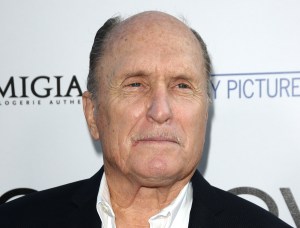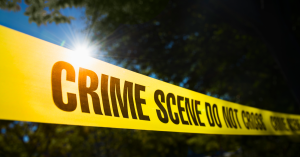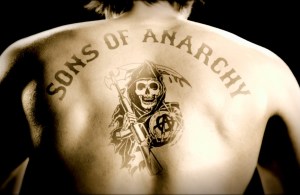As the investigation into the school shooting in Parkland, Florida goes on, more and more blame is being placed on the local police, who reportedly encountered the shooter often before the tragedy.
Nikolas Cruz, the 19-year-old former student who brought an AR-15 assault rifle to his former high school and killed 17 people, had a long history of run-ins with authority. His constant need for disciplinary action was a source of concern for his teachers and counselors, who recommended he be transferred out of Stoneman Douglas High for mental health treatment in an off-campus program.
Videos by PopCulture.com
Cruz refused the transfer, and because he was 18 years old, his educators couldn’t stop him. However, he ended up expelled from Stoneman Douglas High in the spring of 2017 for behavioral problems that haven’t yet been specified.
On sunday, Broward County Sheriff Scott Israel released a statement defending his department against accusations that they failed to handle Cruz early before he could become a killer. He balked at reports that the Broward County Sheriff’s Office had had 39 documented encounters with Cruz in the past, clarifying that it was only 23 encounters total. Still, many felt that that was more than enough chances to get Cruz the help he needed for his various mental health issues, and prevent one of the worst American tragedies of all time.
Last week, The Miami Herald published a list of some of Cruz’s most recent encounters with the police and authority. While some can be dismissed as trivial, the accumulation of them has many wondering why more wasn’t done to side-step this tragedy. Cruz’s mental health was assessed more than once and he was consistently cleared by professionals.
Feb. 5, 2016

On Feb. 5, 2016, an anonymous caller told a Broward County Sheriff’s Office deputy that then-17-year-old Nikolas Cruz had threatened to shoot up his school on Instagram. Cruz had posted a photo of himself with a collection of guns.
The report was forwarded to Deputy Scot Peterson, the Stoneman Douglas High School resource officer. At the time of the shooting, Peterson reportedly stood outside the school for the duration of the attack. He later resigned under pressure.
Sep. 23, 2016
A “peer counselor” for Cruz reported to Deputy Peterson on Sep. 23, 2016, saying that Cruz has reportedly ingested gasoline as part of a suicide attempt. He had also allegedly been cutting himself, and talking openly about buying a gun.
The high school promised to conduct a threat assessment on Cruz. In Florida, students can be committed to mental health facilities with or without consent under the Baker Act, but a mental health counselor advised against this in the case of Cruz.
Sep. 28, 2016

Less than a week later, an investigator for the Florida Department of Children and Families ruled that Cruz was stable, though he had “fresh cuts” on his arms. The investigators filed their report on Sep. 28, 2016, noting that Cruz’s mother, Lynda, had told them he had written “hate signs” on his book bag, and was talking openly about buying firearms.
Sep. 24, 2017

A user on YouTube going by the name of “nikolas cruz” left a comment on a video that read “I’m going to be a professional school shooter” on Sep. 24, 2017. The man who posted the video reported the comment to YouTube and the FBI office in Mississippi. However, the Bureau felt it had insufficient evidence to tie the comment to the teenage Nikolas Cruz living in southern Florida.
Nov. 1, 2017

On Nov. 1, 2017, Lynda Cruz’s cousin Catherine Blaine called the Broward County Sheriff’s Office to report that Nikolas Cruz had firearms. This was the same day that Lynda Cruz passed away due to complications from pneumonia.
Blaine asked the police to confiscate the weapons, until “a close family friend” reportedly agreed to hold on to them, according to the Sheriff’s Office’s records.
Nov. 29, 2017

After their mother’s death, Cruz and his younger brother went to stay with one of her friends in Palm Beach County, Rocxanne Deschamps. However, on Nov. 29, 2017 she called the Palm Beach Sheriff’s Office to report a fight between Nikolas Cruz and her son, who was 22 years old at the time.
Cruz reportedly threatened to “get his gun and come back,” and witnesses claimed he had “put the gun to others’ heads in the past.” However, once Cruz calmed down a bit, Deschamps reportedly asked police not to arrest him.
Nov. 30, 2017

The next day, an anonymous caller in Massachusetts called the Broward County Sheriff’s Office to report that Cruz was amassing a collection of guns and knives, describing him as a “school shooter in the making.”
The deputy who took the call recommended that the caller contact the Palm Beach Sheriff’s Office instead.
Jan. 5, 2018

On Jan. 5, 2018, the FBI tip line received a call about Cruz, detailing his fearful online behavior and his violent history. The caller specifically raised concerns that Cruz would commit a mass shooting, particularly at as chool. They gave the Intake Specialist all four of Cruz’s Instagram accounts and offered to make additional calls to follow up.
The FBI never passed this information to their office in Miami.
Feb. 14, 2018
Nikolas Cruz carried out his attack on Marjory Stoneman Douglas High School on Wednesday, Feb. 14, 2018. He entered the school with an AR-15 around the time of dismissal and opened fire on the crowd of teachers and students in the hallways.

Deputy Scot Peterson was the only other armed person on campus at the time. Security footage shows him rushing to the door of the building where Cruz was murdering people. Peterson drew his gun, yet failed to enter the building. He stood outside for four of the six minutes that the shooting was going on.
Peterson has been lambasted for what many perceived as cowardice by everyone from students to news anchors to the President of the United States. Even Sheriff Scott Israel said that he was “disgusted” by Peterson’s conduct.
Peterson was suspended without pay shortly after the shooting, and then chose to resign instead of facing the pressure. However, his lawyer has since released a statement, explaining that Peterson believed he was acting according to his department’s protocol. The statement also notes that he wasn’t sure whether the gunshots were coming from inside of the building or outside.








